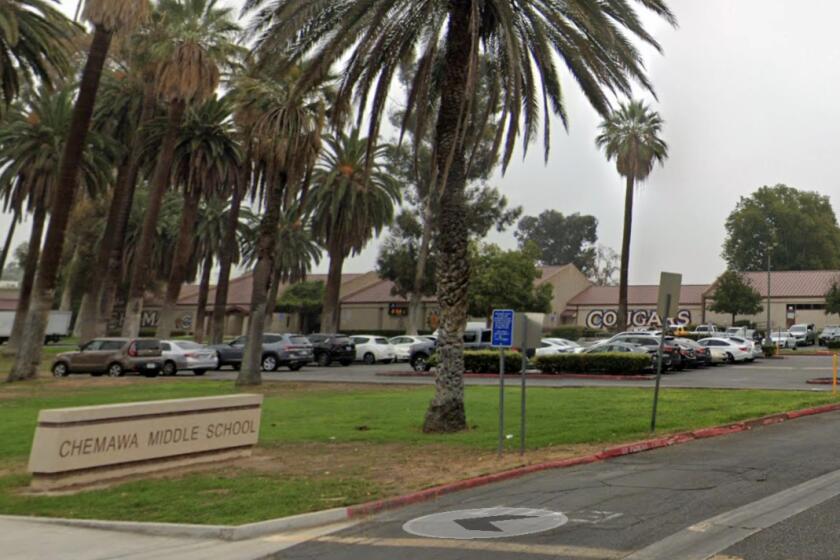UC’s costly perks
THE TIMING COULD HARDLY have been worse for the University of California. Just as it was raising student fees by 8%, bringing them to nearly double what they were in 2001, it had to contend with revelations that it spent millions of dollars on bonuses and other perks for top administrators.
These perquisites may be a worthwhile investment. The UC system must compete with top universities across the nation for outstanding researchers, scientists and administrators, and none of them come cheap. Still, as reported by the San Francisco Chronicle last month, some at least beg a close look, especially because the continued fee hikes are stretching the wallets of many families whose annual incomes are far smaller than some of these bonuses.
Eyebrows are naturally going to rise when the chancellor of UC Santa Cruz is elevated to systemwide provost and gets a $125,000 relocation bonus -- to move 70 miles away to Oakland. Provost M.R.C. Greenwood resigned in November, less than two years into the job, at about the same time the UC system launched an investigation into possible irregularities and conflicts of interest involving two of her hires. Since then, she has been on paid leave, at an annual salary of more than $300,000. The amount of money, however, is less astonishing than the way the UC system decides these payments. President Robert C. Dynes likes to cite a report saying UC administrators are paid less than their counterparts in top research universities nationwide, but the report did not include these fringe benefits.
Dynes has vowed to make the system more transparent, in part by reporting such payments to the regents. But he has not been clear about whether he will make the information widely available to the public. He appointed a task force consisting of UC Regent Joanne Kozberg and former regent (and former L.A. mayoral hopeful) Bob Hertzberg to examine the matter. Having two officials from within the system take a supposedly critical look at the payments is an inadequate response. After professors and other UC personnel complained, the Legislature announced plans to hold a public hearing on the subject.
A probe may well find that many or most of these costs are justified. It is not easy trying to run a premier university system under the constraints of the California budget. The state’s future depends on educating its students well, and its economy thrives in good part because of UC’s prestige. Maintaining those standards is expensive, and will continue to be.
But the UC employees who get along on more meager wage increases, the families who pay more each year for a UC education and the public that finances most of this deserve to know exactly where the money is going. And they should have a voice in whether that’s where it’s most needed.
More to Read
Sign up for Essential California
The most important California stories and recommendations in your inbox every morning.
You may occasionally receive promotional content from the Los Angeles Times.










